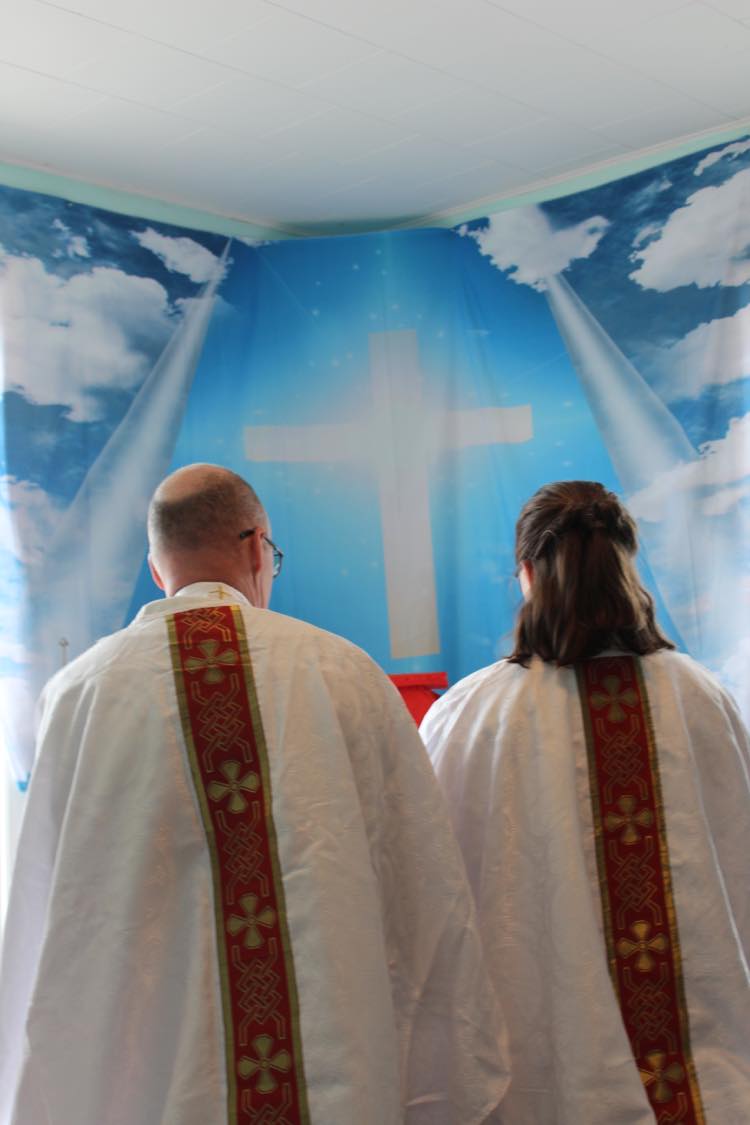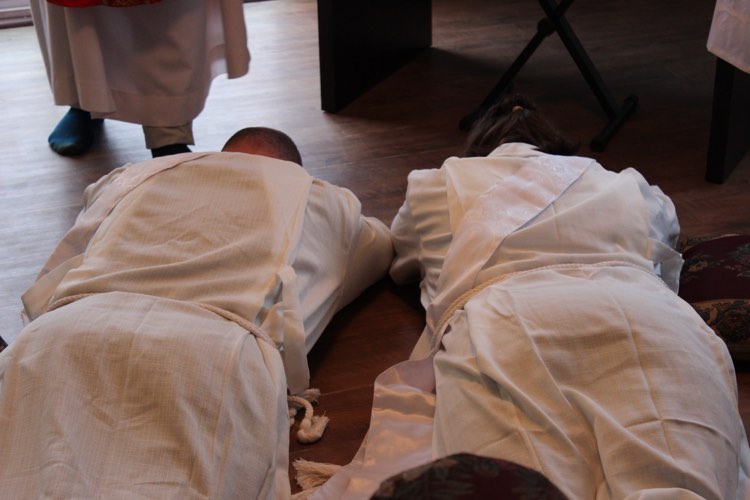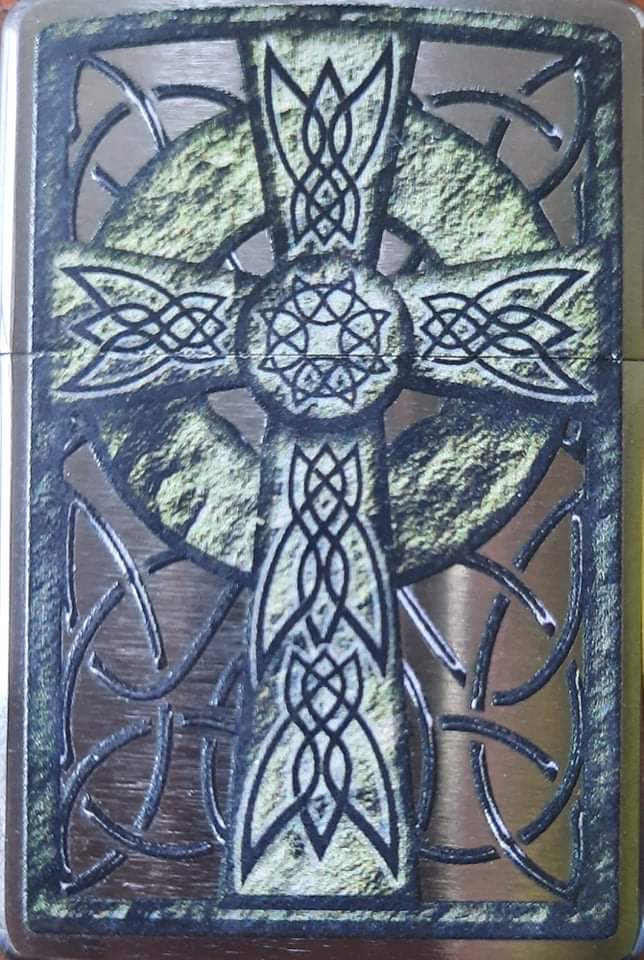- Home
- simply catholic
- Catholic Sacraments
- Catholic Baptism
Simply Catholic and Welcoming You
Catholic Baptism
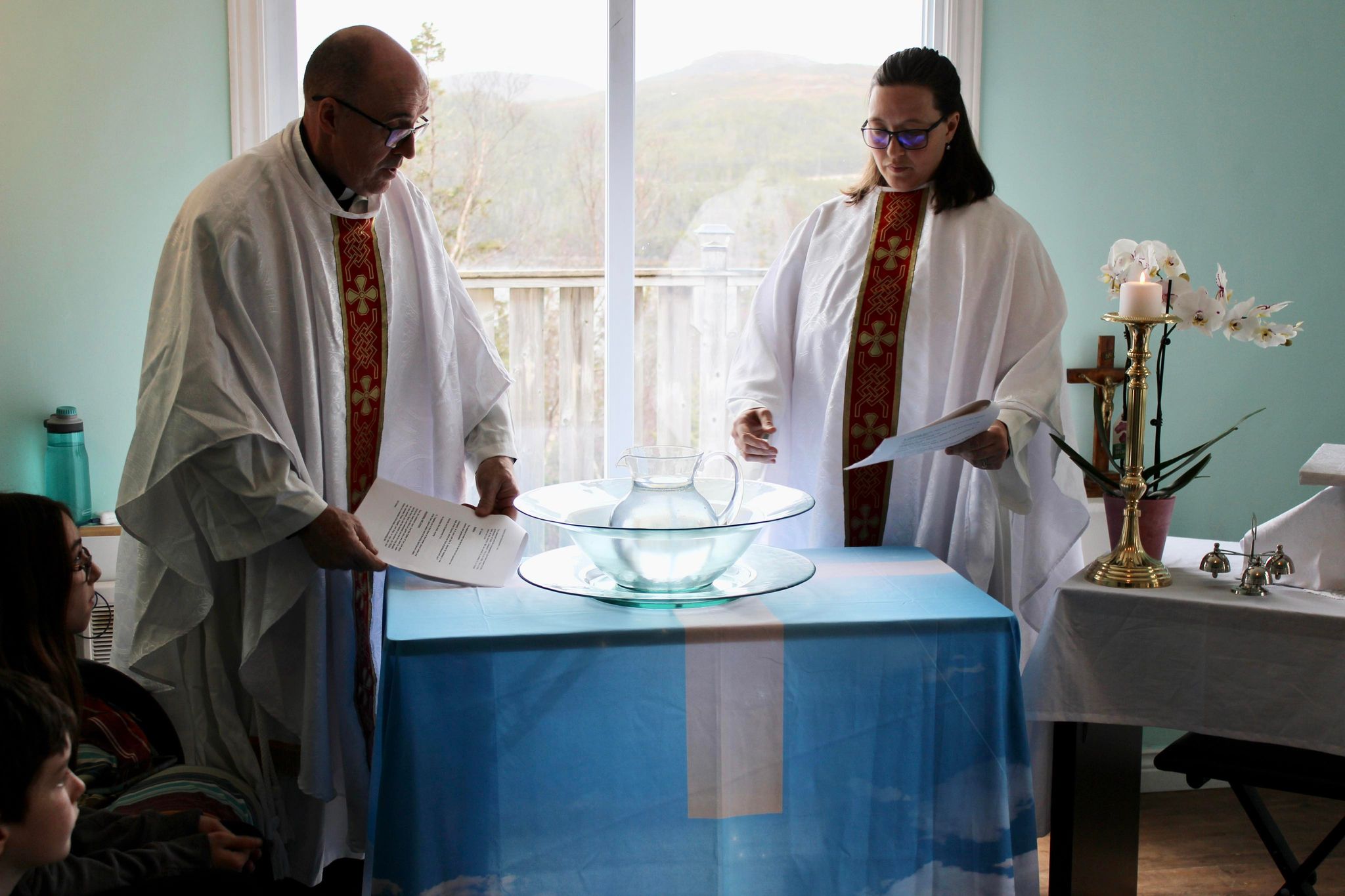
Preparing the Baptismal font
Baptism is the first of the three sacraments classified as Christian Initiation and may or may not be by immersion. Some prefer immersion, others do not. It is likely that John the Baptist was baptised by immersion, but St Barnabus was baptised by St Peter and later St Paul by Annanias each by pouring.
One method is not "better" than the other and the choice comes down to personal preference, practicality or simply convenience.
Baptism is the sacrament that opens the door to receiving each of the other sacraments and most sacraments need to be received only once. This said while acknowledging that receiving the Eucharist all are encouraged to partake of and receive as often as you are able or so inclined. Marriages fail and remarriages occur; and Unction or healing/blessing of the sick or dying may need to be repeated for some people.
Even Jesus Christ Himself was baptised, setting the example for the rest of us. Baptism signifies, by the immersion or pouring of water, that we gladly die to the world and are reborn in Christ as heirs of His Salvation and aids in His divine commission. Through baptism all Christians accept that we are now part of ‘’..a royal priesthood, a holy nation, a people for His own possession, that you may proclaim the excellencies of Him who called you out of darkness into His marvellous light.” 1 Peter 2:9
Baptism is the sacrament of admission and adoption into the faith. It is performed by pouring, sprinkling or immersing the person three times, once for each member of the Holy Trinity.
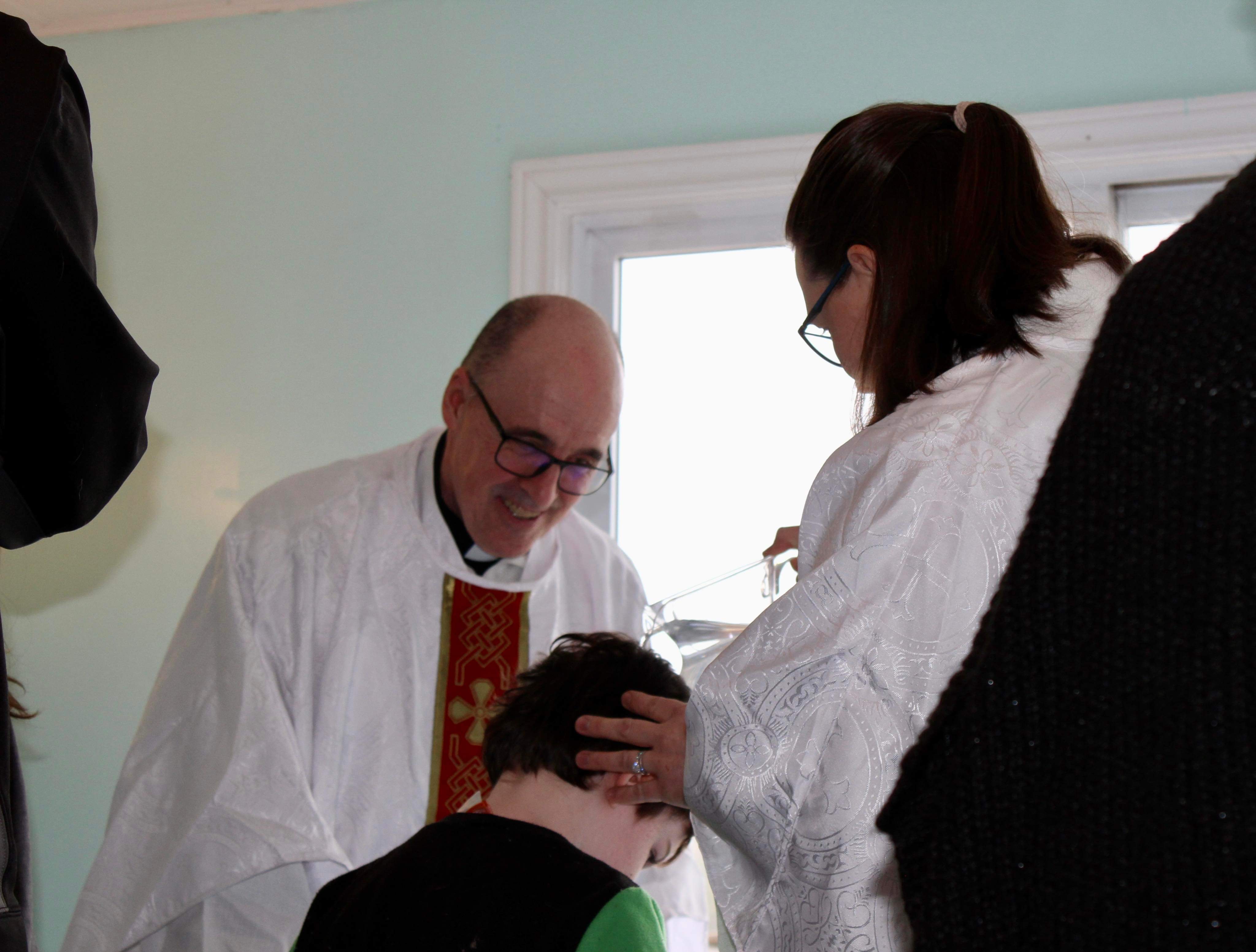
A young man being baptised
It is to be preferred that candidates are old enough to speak for themselves regarding their baptism. Yet we understand that some people feel the need for infant baptism, which we will do if that is the request of the parents. We understand that the Roman Catholic church teaches infant baptism so that if something happens to the infant they do not go to purgatory.
We find Jesus telling us that unless we are like little children and come unto Him we will not be saved. It therefore follows that children will come unto Him. (Even our criminal courts say that children under 12 are incapable of full knowledge even if they commit a major crime, thus mortal sin would be taken as impossible until the 11th year.)
In light of this it is unlikely, maybe even impossible for a child, let alone an infant, to commit the "unforgivable sin" spoken of in scriptures to send a soul to purgatory. This is our stance on this. Obviously Roman Catholics and others disagree. We don't fall out over such things, your mileage may differ. That is between you and God.
Since only mortal sin can keep us from being back with God any venial sins that a child might commit in their innocence will not keep them from God. Note this is our way of looking at this. We don't argue with anybody over it. If you want your baby baptised we will oblige. We just don't think it's necessary until they're 11 years of age and choose to do it for themselves, at which point they can receive Confirmation at the same time like any other "adult".
Christening is another name for baptism but is usually used to refer to the baptism of infants.
In times and circumstances of need, most frequently with the possibility of imminent demise, baptism can be performed by any baptised person as long as the proper form is used. Thus as long as the person/child is baptised by saying, "I baptise you/thee in the name of the Father, and of the Son and of the Holy Spirit. Amen."; with water being simultaneously poured on their head three times, the baptism is held to be "valid", especially where death subsequently follows. This is known as the Trinitarian formula. Note that this proper form cannot be changed or the baptism is considered invalid in all Catholic churches.
Also note that candidates for ordination in the catholic church will be asked to confirm that their baptism followed the Trinitarian formula (if they were not originally baptised in the catholic church). If the answer is no, this means that the baptism and any subsequent sacraments received are considered invalid under catholic canons and will need to be repeated in the approved manner. This can all be done privately unless the candidate requests otherwise.
Other Forms Of Catholic Baptism
Martyrdom has been deemed to be a "Baptism by Blood" enabling the salvation of those martyred before being baptised.
There is also a "Baptism by Desire" for those who were preparing for baptism yet died before they could receive the sacrament.
By the third and fourth centuries, formal baptism involved catechetical instruction as well as chrismation, exorcisms, laying on of hands, and recitation of a creed. Each of which are now found in the formal, clergy baptisms performed today as the church's official Rite Of Baptism.
Still as a sacrament, baptism should be performed by clergy and in a much longer ritual than this shortened version. The full rite of baptism can be found here.
Recent Articles
-
Catholic-Confession
Apr 19, 25 08:53 PM
Full breakdown of the Catholic Confession Sacrament of Reconciliation -
Ordination, incardination and dismissal of clergy
Mar 03, 25 06:47 PM
Overview of Ordination to Holy Orders, incardination and dismissal of clergy -
Catholic Last Rites
Mar 03, 25 06:41 PM
An explanation of the Catholic Last Rites and Anointing of the Sick
